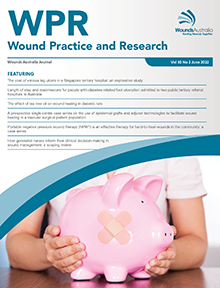Introduction The demanding nature of wound care, coupled with increased reports of elevated stress among healthcare staff in Saudi Arabia, warranted the examination of burnout and job satisfaction in this healthcare domain.
Aim The study aimed to assess the prevalence of burnout and the level of job satisfaction among wound care professionals in Saudi Arabia.
Methods A cross-sectional online survey was conducted among wound care staff in Saudi Arabia. Participants provided demographic information and responded to standardised questionnaires measuring burnout and job satisfaction.
Results A total of 118 wound care professionals participated in the study. The results revealed alarming levels of burnout among wound care professionals, with many participants experiencing high disengagement (84.7%), exhaustion (83.1%), and burnout (79.7%). Job satisfaction scores were moderately low overall, highlighting the importance of addressing both burnout and job satisfaction in this workforce. Demographic factors such as age, gender, marital status, and working hours per duty showed no significant associations with burnout. However, differences were observed among professional roles, with nurses exhibiting lower burnout levels compared to other professions.
Conclusion The study findings highlight the urgent need for targeted interventions to mitigate burnout and enhance job satisfaction among wound care professionals in Saudi Arabia.
 Wound Practice and Research
Wound Practice and Research


